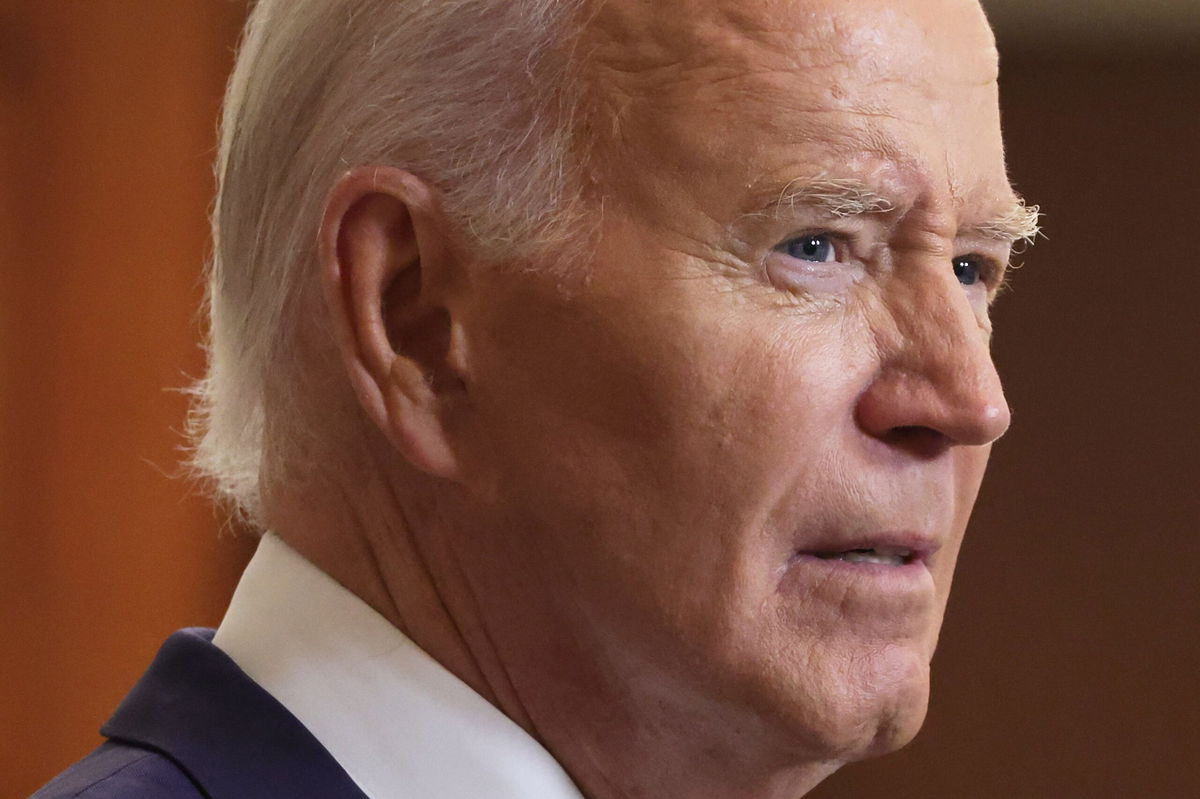Biden weighs more US defenses for Israel as the region prepares for Iranian retaliation

US President Joe Biden delivers remarks on the release of Wall Street Journal reporter Evan Gershkovich and former US Marine Paul Whelan from Russian captivity
By Oren Liebermann, CNN
(CNN) — President Joe Biden is weighing more US defenses in the Middle East as the US prepares for an Iranian retaliation against Israel that officials say could include an attack on American forces.
In a phone call with Israeli Prime Minister Benjamin Netanyahu Thursday, Biden said the US would “support Israel’s defense against threats,” which would include “new defensive US military deployments,” according to a readout of the call.
The statement did not detail what new deployments would occur ahead of an anticipated Iranian attack in response to the assassination of Hamas leader Ismail Haniyeh in Tehran. According to several US officials, the Pentagon has discussed with US Central Command what adjustments to make to US force posture in the region, but no final decision had been made as of Thursday afternoon. The officials said an Iranian response could occur in the coming days.
The USS Theodore Roosevelt carrier strike group, which includes the aircraft carrier, destroyers and other warships, has been operating in the Gulf of Oman in recent weeks. The strike group could potentially move into the Gulf of Aden or the Red Sea, where Navy warships have intercepted dozens of Houthi launches over the past several months.
The USS Wasp amphibious assault ship and several other Navy vessels are currently operating in the Mediterranean Sea. The group includes a Marine expeditionary unit capable of carrying out an evacuation of American citizens from Lebanon if the US ordered such an evacuation.
Biden said late Thursday night he is “very concerned” about escalating tensions in the Middle East.
“We’re very concerned about it. I had a very direct meeting with (Prime Minister Benjamin Netanyahu) today. And – very direct. We have the basis for a ceasefire. He should move on it, and they should move on it now,” Biden told reporters at Joint Base Andrews.
Asked whether the assassination of Haniyah impacted the chance of a ceasefire, he said it has “not helped.”
Iran’s Islamic Revolutionary Guard Corps (IRGC) promised a “harsh” and “painful” response to the assassination. Israel has not commented on the killing.
The Iranian response to the killing of Haniyeh may include attacks on US forces in Iraq and Syria from Iranian-backed proxy militias in the region, according to the officials. For months, the militias launched scores of attacks on US forces in the Middle East, but those largely subsided after a drone attack killed three US service members in Jordan in January. Officials say Iran could instruct those groups to start firing on US forces once again.
Israel Defense Forces spokesman Rear Adm. Daniel Hagari said that “international partners” have bolstered their forces in the region, though he did not specify which countries.
“We have very good defense systems,” he said of Israel’s own preparations for an attack, “and in addition we have international partners who have reinforced their forces [deployed] in the region, to help us counter the threats.”
A Defense Department spokesman said Thursday the Pentagon has no information to provide on the movement of US forces or changes to force condition at this time.
The US is expecting the anticipated Iranian attack may be similar to the barrage of ballistic missiles and drones launched against Israel on April 13, officials said. But this attack could be larger and more complicated than before, including the possibility of a coordinated attack with Iranian proxies from multiple directions.
A coalition of countries, including Jordan and other Arab states, came together in April to share intelligence and intercept the Iranian barrage. But officials say it’s unclear if such a coalition could be stood up again so quickly and whether all of the countries are willing to participate once again.
Hezbollah leader Hassan Nasrallah hinted that a coordinated attack on Israel could be in the works after Israel assassinated one of its top commanders in Beirut less than 24 hours before the killing of Haniyeh.
“Because they have picked a fight with everyone, they don’t know where the response will come from … the response will come separately or coordinated,” he said in a speech Thursday.
The US still believes that no one in the region is interested in an all-out war engulfing the Middle East, officials say, but a potential miscalculation risks sparking a broader conflict.
This story has been updated with additional details.
The-CNN-Wire
™ & © 2024 Cable News Network, Inc., a Warner Bros. Discovery Company. All rights reserved.